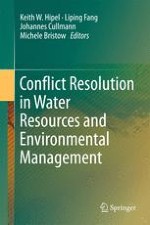2015 | OriginalPaper | Buchkapitel
6. Is Water Really a Scarce Resource? Initiating Entrepreneurship for Global Clean Water Supply
Implications of a Global Economic Policy on Water Security and Entrepreneurial Technology Strategy
verfasst von : André Presse
Erschienen in: Conflict Resolution in Water Resources and Environmental Management
Aktivieren Sie unsere intelligente Suche, um passende Fachinhalte oder Patente zu finden.
Wählen Sie Textabschnitte aus um mit Künstlicher Intelligenz passenden Patente zu finden. powered by
Markieren Sie Textabschnitte, um KI-gestützt weitere passende Inhalte zu finden. powered by
